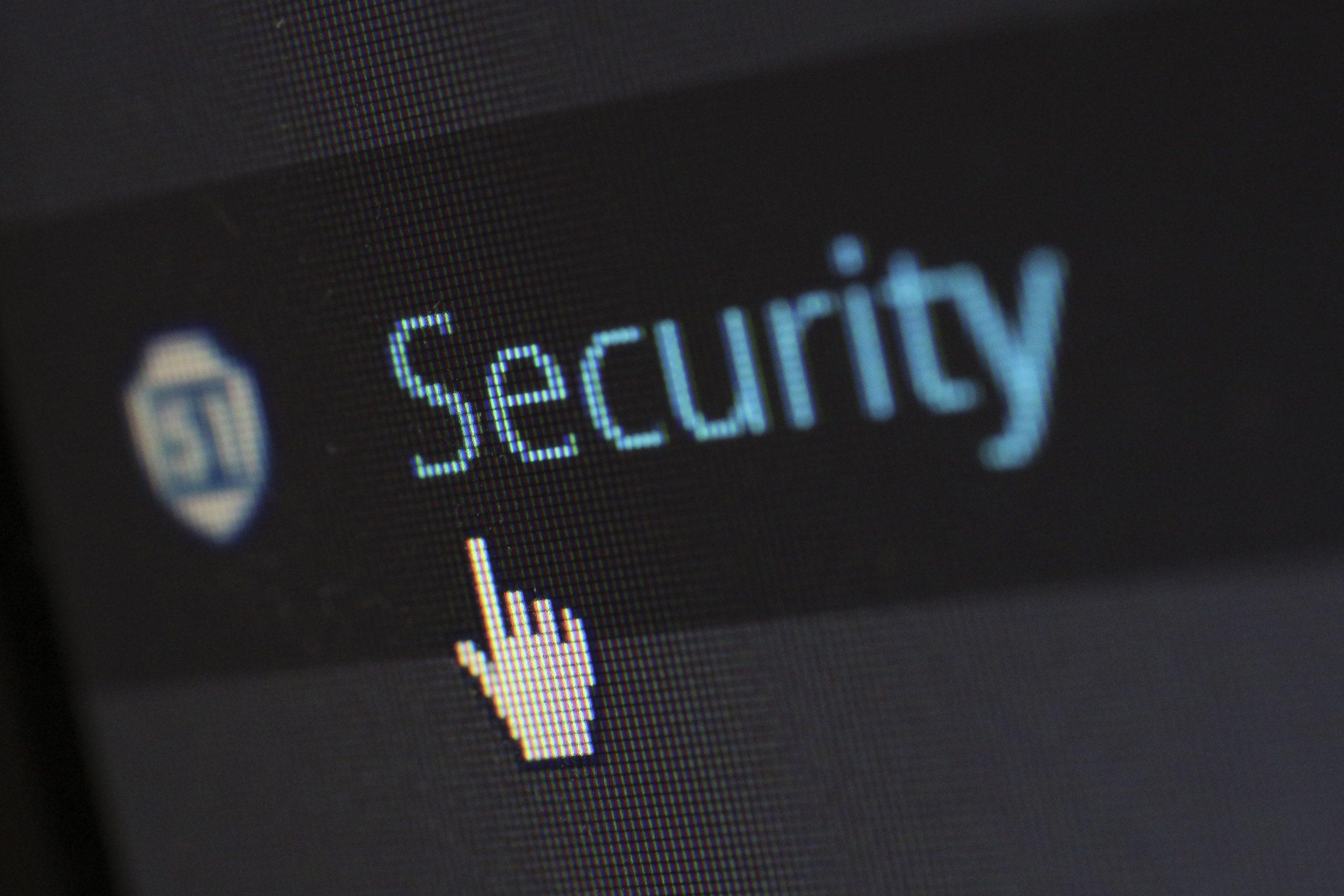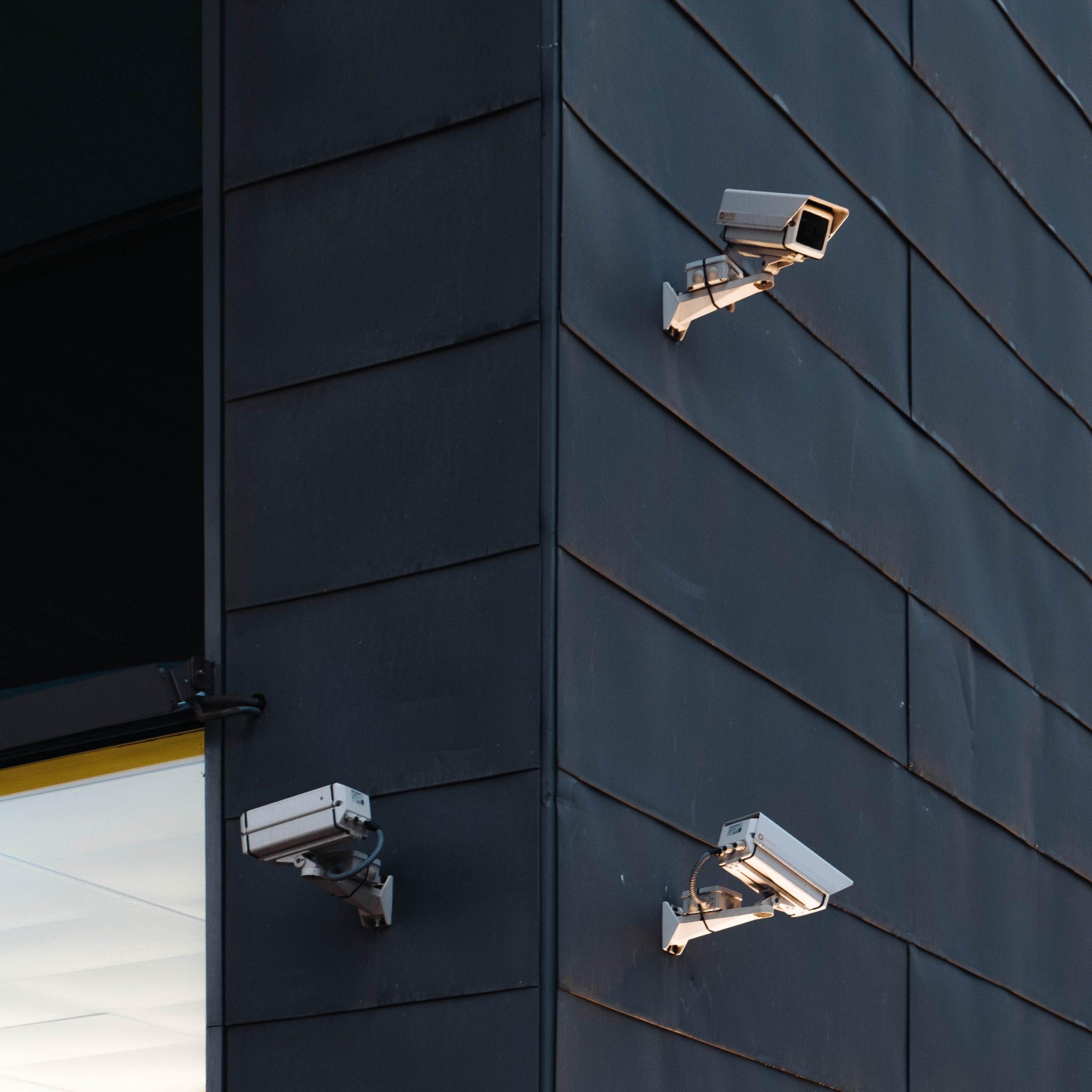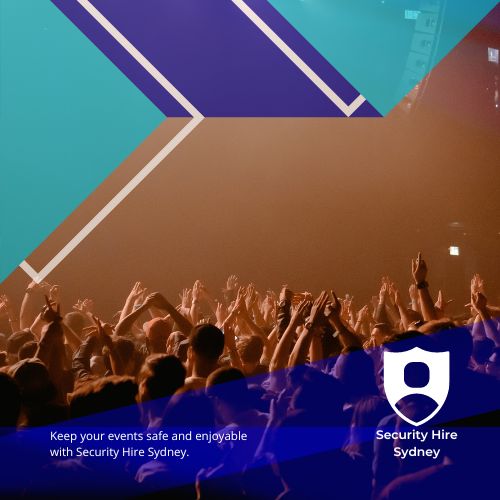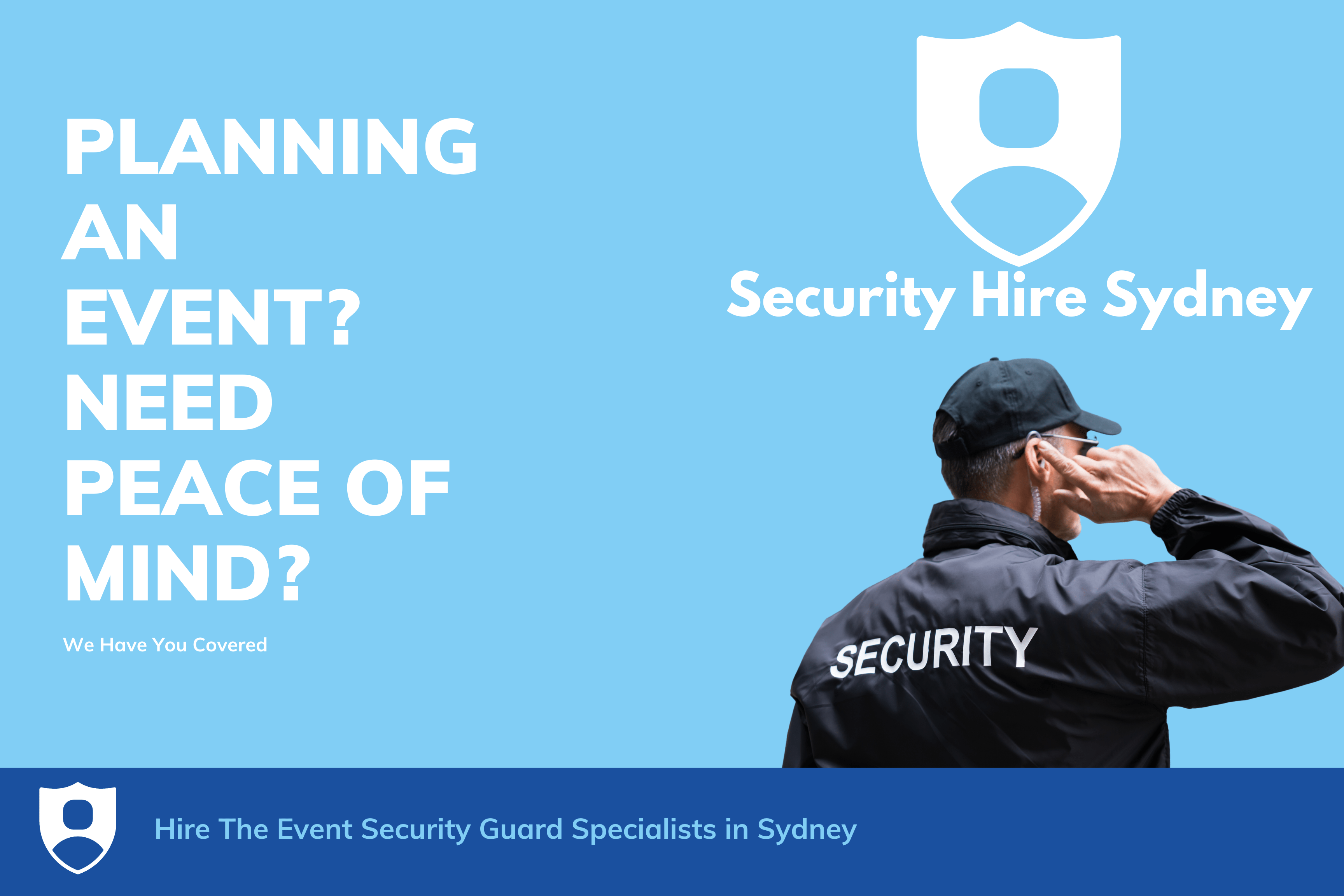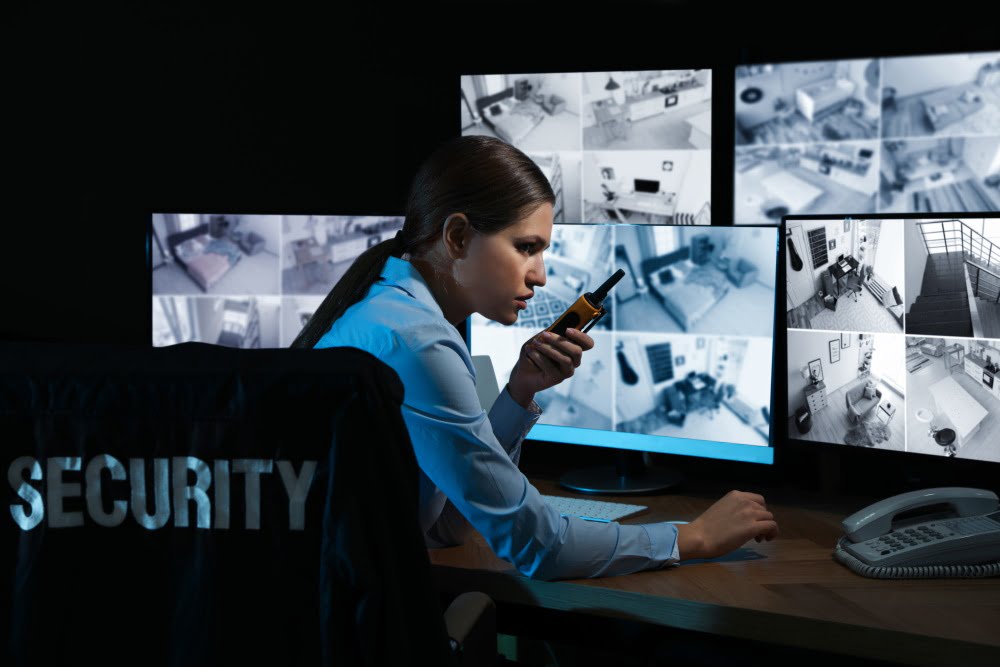What is The Event Security?
Event security is a critical aspect of planning and executing any gathering, whether it’s a small private party or a massive music festival. It encompasses a range of measures and personnel aimed at ensuring the safety and well-being of attendees. In this article, we’ll delve into what event security entails, why it’s essential to hire security for events, and how it contributes to the success of your occasion.
Event security refers to the comprehensive strategies, procedures, and personnel deployed to safeguard attendees, assets, and the overall integrity of an event. Its primary goal is to prevent and respond to security threats, disturbances, or emergencies that may arise during an event. Event security can be categorized into several key components:
1. Access Control:
Controlling who enters the event venue is a fundamental aspect of security. This involves checking tickets, verifying identities, and, in some cases, conducting bag checks or using metal detectors to screen for prohibited items.
2. Crowd Management:
Effective crowd management is vital, especially at large events. Trained security personnel ensure that crowds move safely, prevent overcrowding, and respond to situations like crowd surges or disturbances.
3. Emergency Response:
Security teams are prepared to respond swiftly to various emergencies, including medical incidents, fires, or security breaches. They coordinate with local emergency services when necessary.
4. VIP Protection:
For events with high-profile guests, celebrities, or dignitaries, VIP protection is often required. This involves a specialized security detail that ensures the safety and privacy of these individuals.
5. Perimeter Security:
Controlling access to the event venue extends to securing the perimeter. Fencing, barricades, and security personnel help maintain a safe boundary.
6. Alcohol Management:
Events serving alcohol may require security measures to prevent overconsumption and handle alcohol-related incidents.
7. Training and Preparedness:
Security personnel undergo training to handle various scenarios, from medical emergencies to security breaches. They are equipped to communicate effectively and coordinate responses.

Why Hire Security For Events?
Hiring security for events is essential for several compelling reasons:
1. Safety: The safety of attendees is paramount. Event security professionals are trained to identify and mitigate potential risks, ensuring a secure environment for everyone.
2. Crowd Control: Maintaining order in large crowds is a complex task. Trained security personnel help prevent overcrowding, manage queues, and respond to any disturbances, reducing the risk of stampedes or conflicts.
3. Asset Protection: Events often involve valuable assets, from equipment to merchandise. Security teams deter theft and vandalism, safeguarding these assets.
4. Liability Reduction: Adequate event security can help reduce the liability of event organizers in case of accidents, injuries, or security breaches.
5. Reputation: A well-organized and secure event enhances the reputation of event organizers, leading to increased attendee satisfaction and positive word-of-mouth.
6. Emergency Response: In emergencies like medical incidents or natural disasters, prompt and coordinated responses by security personnel can save lives.
7. Compliance: Many local regulations and ordinances require event organizers to provide security measures, including crowd control and emergency preparedness.
Event security is a comprehensive system that encompasses various measures and personnel to ensure the safety, order, and success of any event. Whether you’re planning a small private party or a large-scale festival, hiring security for your event is a responsible and necessary step. It not only protects attendees and assets but also contributes to the overall positive experience, leaving a lasting impression on your guests. Prioritizing event security is an investment in the safety and success of your occasion.
What Are The Levels Of Event Security?
Event security is a multifaceted endeavor, and understanding its various levels is crucial for planning a safe and enjoyable event. Whether you’re organizing a small corporate meeting or a massive music festival, having the right levels of security in place is essential to manage risks and ensure the well-being of attendees. In this article, we’ll delve into the different levels of event security and why each one matters.
1. Basic Security Measures:
At the foundation of event security are basic measures that every gathering should consider. These include:
- Access Control: Controlling who enters the event is the first line of defense. This involves ticket checks, verifying identification, and ensuring that attendees meet age requirements for alcohol-related events.
- Crowd Management: Managing the flow of the crowd to prevent overcrowding and maintain order is essential. Trained personnel ensure that people move safely and respond to incidents like crowd surges or unruly behavior.
- Emergency Response: Basic first aid and emergency response personnel should be on-site to address medical incidents, accidents, or unforeseen emergencies.
- Asset Protection: Protecting valuable assets such as equipment, merchandise, and event infrastructure from theft or damage is part of basic security.
2. Intermediate Security Measures:
For larger events or those with specific risk factors, intermediate security measures become necessary:
- Surveillance and Monitoring: The use of security cameras and monitoring social media for potential threats or incidents is common. Proactive surveillance helps identify issues before they escalate.
- VIP Protection: Events with high-profile guests, dignitaries, or celebrities require specialized security details to ensure their safety and privacy.
- Perimeter Security: Securing the event’s perimeter with fencing, barricades, and additional security personnel helps maintain a safe boundary.
- Alcohol Management: At events serving alcohol, intermediate security measures might include trained staff to manage alcohol-related incidents and prevent overconsumption.
3. Advanced Security Measures:
For large-scale events, high-security gatherings, or those with specific security concerns, advanced measures are vital:
- Security Technology: Advanced technology such as facial recognition, RFID tracking, and advanced screening methods can enhance security effectiveness.
- Private Security Firms: Hiring private security firms with specialized expertise in large events, crowd control, or high-risk situations can significantly bolster security.
- Crisis Management Plans: Developing detailed crisis management plans that cover various scenarios, from terrorism threats to severe weather incidents, is crucial at this level.
- Coordination with Local Authorities: Advanced events often require close coordination with local law enforcement, emergency services, and government agencies.
4. Specialized Security Measures:
For unique events with extraordinary security needs, specialized measures may be necessary:
- Intelligence Gathering: Gathering and analyzing intelligence about potential threats is a specialized security function, especially for events with a high-profile or sensitive nature.
- Undercover Security: In some cases, plainclothes security personnel may be deployed to discreetly monitor and respond to potential threats.
- Cybersecurity: For events with significant online components, cybersecurity measures are essential to protect sensitive data and infrastructure.
- Diplomatic or Government Security: Events involving diplomats or government officials may require security provided by government agencies or diplomatic security services.
Event security is not one-size-fits-all, and the level of security required depends on factors such as event size, nature, and potential risks. By understanding the different levels of event security, event organizers can make informed decisions to ensure the safety and success of their gatherings. Whether you’re planning a small conference or a major public event, the right security measures are essential for a seamless and secure experience for all attendees.
What Are The Duties Of A Security Team On An Event?
When hosting an event, the safety and security of attendees, staff, and assets should be a top priority. Employing a professional security team is crucial to ensure that your event runs smoothly and without incident. Here, we’ll delve into the essential duties and responsibilities of a security team at an event.
1. Access Control:
One of the primary responsibilities of a security team is to maintain access control. This involves checking tickets, credentials, or badges to ensure that only authorized individuals enter the event premises. Proper access control helps prevent gatecrashers and ensures the safety of paying attendees.
2. Crowd Management:
Effective crowd management is vital, especially at large-scale events. Security teams are responsible for maintaining order, preventing overcrowding, and managing the flow of people. They must be prepared to address issues like line-cutting, unruly behavior, or crowd surges to avoid potential hazards.
3. Emergency Response:
Security teams should be well-trained in emergency response procedures. This includes knowing how to react in case of medical emergencies, accidents, fires, or security breaches. They should also be familiar with the location of first-aid stations and emergency exits.
4. Surveillance and Monitoring:
Security personnel often utilize surveillance cameras strategically placed throughout the event venue. Monitoring these cameras allows them to identify potential threats or incidents and respond promptly. Additionally, they may monitor social media channels for any hints of security concerns related to the event.
5. Asset Protection:
Events often involve valuable assets, such as equipment, merchandise, and event infrastructure. Security teams are responsible for safeguarding these assets from theft, vandalism, or damage. They may also oversee the secure loading and unloading of equipment.
6. VIP Protection:
If high-profile guests, dignitaries, or celebrities are attending the event, security teams may be assigned to provide VIP protection. This involves ensuring the safety and privacy of these individuals while allowing them to enjoy the event.
7. Conflict Resolution:
Security personnel should be skilled in conflict resolution techniques. They must de-escalate potentially volatile situations and handle disputes among attendees in a professional and non-confrontational manner.
8. Perimeter Security:
Securing the event’s perimeter is vital to prevent unauthorized entry. Security teams may be responsible for setting up physical barriers, fencing, and barricades. They should also control access points and conduct thorough searches when necessary.
9. Technology Utilization:
Modern security teams often utilize technology to enhance their effectiveness. This may include metal detectors, surveillance cameras, RFID tracking systems, and communication devices like radios or walkie-talkies.
10. Communication:
Clear and efficient communication is key to successful event security. Security personnel should establish communication channels with event staff, local law enforcement, and emergency services. This ensures that information can be relayed quickly in case of an emergency.
11. Training and Preparedness:
Security teams must undergo regular training to stay updated on security protocols and procedures. Conducting drills and simulations of potential emergency scenarios helps ensure that all team members are well-prepared.
12. Coordination with Local Authorities:
Security teams often coordinate with local law enforcement agencies and emergency services. They should provide these agencies with details about the event, its size, and security measures in place. In some cases, local authorities may be on standby to assist in emergencies.
13. Post-Event Evaluation:
After the event concludes, security teams may participate in a post-event evaluation. This involves reviewing security measures, assessing their effectiveness, and identifying areas for improvement.
A professional security team plays a critical role in ensuring the safety and security of all aspects of an event. Their duties encompass access control, crowd management, emergency response, surveillance, asset protection, VIP event security, conflict resolution, perimeter security, technology utilization, communication, training, coordination with local authorities, and post-event evaluation. By entrusting your event to a capable security team, you can host a successful and secure event that leaves attendees with a positive experience and peace of mind.


